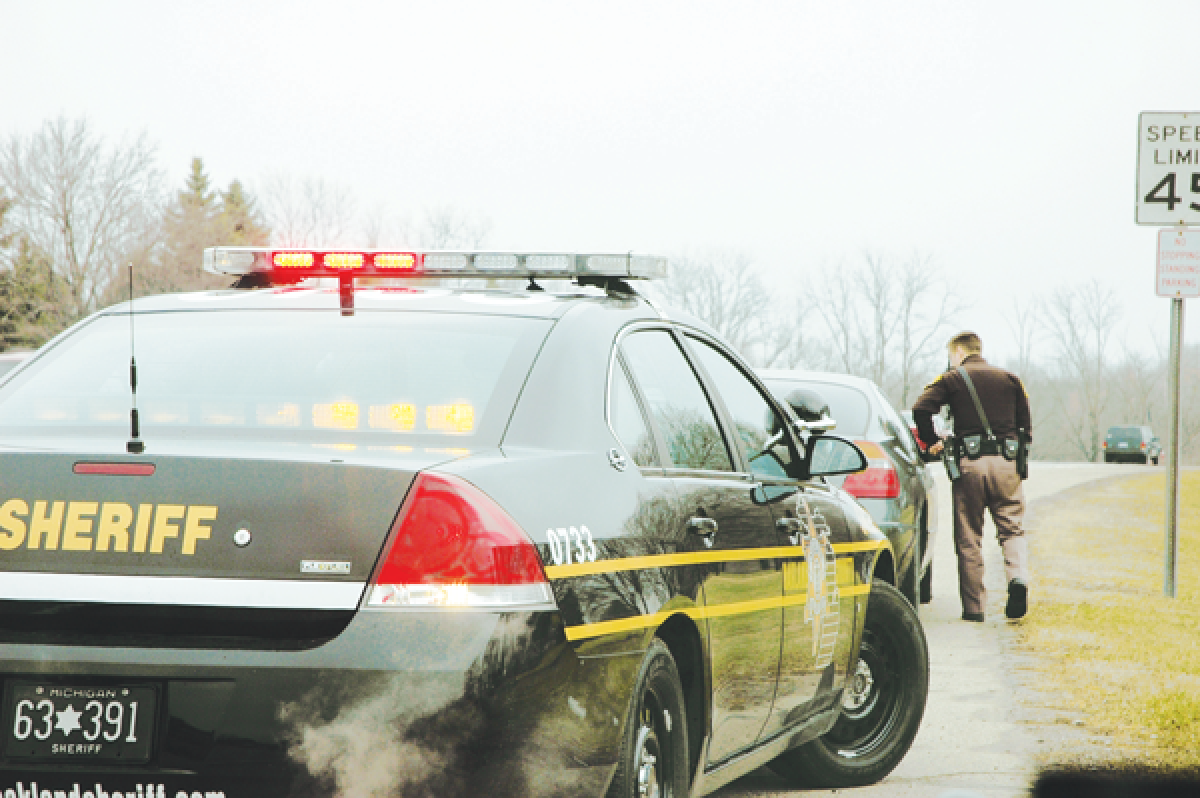OAKLAND COUNTY — Impaired driving crashes across Michigan are on the rise, a troubling statistic released in a study from Bridge Michigan, which also found that police across the state are not making as many arrests for drunk driving as they have in the past.
The study found fatal alcohol and drug-related crashes have risen by 40% across Michigan, with alcohol-and-drug related fatalities up statewide and in many counties — including Oakland, Macomb, and Wayne.
Over the last five years, Nick Soley, of the Bloomfield Township Police Department, said the township has seen an increase in “drugged driving.”
“That’s twofold. It’s illicit drugs and also prescription drugs, which is, obviously, just as dangerous as drunk driving,” he said. “The driving pattern may be erratic and may be similar to what we see with drunk driving, when we talk about swerving and speeds and things like that, and even being passed out behind the wheel.”
Now that marijuana is legal in Michigan, Solely said, many people have forgotten the ramifications of marijuana, adding that many others have been caught on the road abusing prescription drugs.
“How many prescription bottles do we see that say don’t operate a motor vehicle or heavy machinery? I think several people have the notion that if I’m using them as they are prescribed by my doctor, I’m good to go. That’s not the case. I always use the common example of Ambien. It’s a sleeping pill. It’s meant to put you to sleep, so you shouldn’t be driving on those pills.”
According to the Michigan State Police annual drunk driving audit, in 2023 the state had nearly 10,500 crashes where a driver was found to be impaired, resulting in 454 deaths and more than 6,300 injuries.
“COVID brought out a lot of addiction problems, or drug and alcohol use,” Soley said. “People turned to that when they didn’t feel like going to the doctor because it was scary. We’re still definitely looking at the ramifications from that.”
While the number of impaired crashes has increased, drunk driving arrests across Michigan have dropped 28% from 2014 to 2023, declining in 67 of the state’s 83 counties since 2014, according to Bridge. In Oakland County, drunk-driving arrests from 2014 to 2023 were down 20%. They were down 16% in Wayne and 15% in Macomb, according to annual state drunk driving audits.
“If you look at COVID, traffic enforcement went down dramatically because we obviously wanted a lot less face-to-face interpersonal contact … but what went up during COVID was the feeling of isolation, anxiety, depression,” Oakland County Sheriff Mike Bouchard said. “Obviously, self-medication comes in a variety of forms — including alcohol and drugs — so you have a recipe for less enforcement and higher consumption of alcoholic drugs, which, obviously, if you do the math on that, leads to more crashes.”
The disparity between crashes and arrests, experts say, correlates with fewer police officers and less traffic enforcement, a recipe for more dangerous driving.
Bouchard confirmed there are a lot fewer police officers on the streets around Michigan than there were 20 years ago, including in Oakland County.
“Every agency is struggling with their budgets and they’re struggling with recruiting and retention as well,” he explained. “Right now, we have 40 vacancies in the Sheriff’s Office alone, so if you have less people, you’re going to have less eyes, and obviously enforcement.”
“We’re down to seven officers,” Soley added. “Everywhere is short. You couple that with the facts that I do know, that while Bloomfield Township is experiencing a slight increase in call volume each year, our serious crimes are growing exponentially, and that takes our officers off the road longer. They’re now investigating more serious crimes, like your breaking and entering, serious crimes that require serious follow-up and crime technicians and things like that, leaving our officers less time on a shift to do proactive traffic enforcement.”
With limited resources and many police departments shorthanded, there just aren’t as many officers available to handle traffic enforcement as there were in the past.
“If you’re shorthanded and you’re going from call to call, you don’t have time to assign people to work in high-crash locations, because they can’t park there and do select enforcement, they have to answer 911 calls, first and foremost, and high-priority calls,” Bouchard explained.
“If you can get back the staffing levels, then you can have selective enforcement assignments without degrading your response capability,” he added. “We have to be able to respond to everything.”
The Oakland County Sheriff’s Office has been working hard to fill its vacancies, recently adding a dedicated recruitment specialist whose job is to focus on how to get more people to apply, a more diverse applicant pool, and a broader community to hear about the opportunities in law enforcement. The Sheriff’s Office, Bouchard explained, has also increased its visits to high schools, and other locations, to expose students and other potential future employees to what a career in law enforcement might look like via cadets.
“We’ve also dropped the age to hire into a number of positions — including in the jail — to 18. You can go into the military at 18, so we have made some changes in our tactics, in terms of broadening our net, if you will, and changing some of the components to what may have been a hurdle to hire,” he said.
In Bloomfield Township, Soley said there seems to be fewer qualified applicants, which, when paired with lateral transfers and an ever-increasing number of retirements, only compounds the problem of employee retention at police departments across the state.
“It’s easy to give a cop-out of, people don’t want to be cops anymore. I teach at our academies, and I don’t think that’s true, because we still have full academies of people going through it. I think we’re just seeing less qualified applicants because there is more opportunity out there.”
 Publication select ▼
Publication select ▼



























